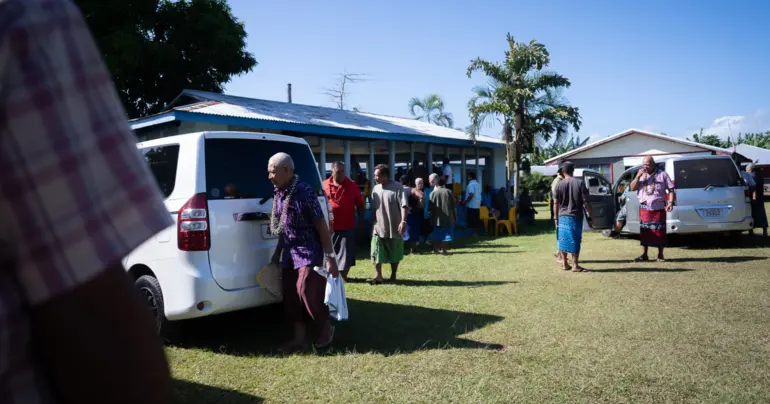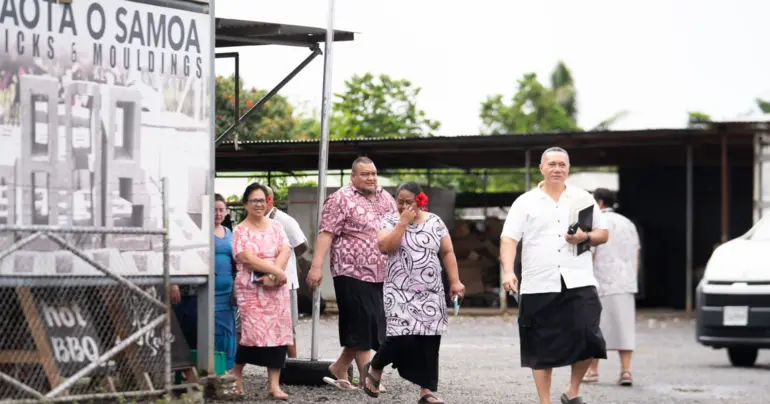Debate on vaping needs more proactivity from leaders
The debate surrounding the local consumption of e-cigarettes and its effects on citizens’ health took another twist yesterday in Parliament. There were revelations that there are currently no laws in Samoa that apply directly to electronic nicotine delivery systems (ENDS) or e-cigarettes and their consumption.
Responding to concerns raised by the Fa'asaleleaga No. 2 M.P. Magele Sekati Fiaui in the Parliament this week, who claimed the product is “life-threatening” as there are reports that e-cigarettes can also cause cancer, the Deputy Prime Minister and the Minister of Customs and Revenue said there were no laws in Samoa that regulated its use.
"I've seen reports based on speculations about the impact of vaping on a person's life, but there is no scientific evidence to prove that it can lead to cancer or that people who vape have been diagnosed with cancer,” said Tuala Iosefo Ponifasio. "But in due time, we will provide a detailed report on the issue but so far, there's no law to ban the importation of vapes to Samoa."
Tuala said people who take up vaping don’t smoke or are trying to quit and use it as a pathway to gradually stop smoking.
However, We are not surprised that Samoa lacks legislation on vaping – which is defined as the act or habit of breathing in flavoured steam containing nicotine from a special device (e-cigarettes) – because local users only picked up on the habit over the last two to three years at the height of the COVID-19 pandemic.
This issue is an example of how the consumption habits of citizens in Samoa are moving quickly with the times, and the local health authorities are finding it difficult to keep up, in terms of having in place the necessary legislative framework to govern its use or consumption. The last thing that Samoa needs is for local businesses to import products without being mindful or aware of the wider and long-term health consequences. If the use of a product presents a danger to the consumer’s long-term health, laws or regulations should be introduced. This would ensure the users are warned of the health dangers and the businesses hit with extra taxes to bump up the retail price and hopefully over the long-term become a deterrence to future consumers.
In his response to Magaele in the Parliament this week, Tuala said there’s no scientific evidence linking vaping with cancer or people who frequently vape being diagnosed with cancer.
But how can the Deputy Prime Minister tell the Parliament that there’s no scientific evidence linking vaping with cancer when the World Health Organisation (WHO) has dedicated a page on its global website which highlights the health dangers of e-cigarette consumption?
Looking through the WHO website page, you get to the section “What is WHO doing about ENDS”, which states unequivocally that: “WHO regularly monitors and reviews the evidence on ENDS and health and offers guidance to governments.”
On whether e-cigarettes cause injuries to the lung, the WHO said there is “growing evidence” it is associated with lung injuries.
“There is growing evidence that ENDS could be associated with lung injuries and in recent times e-cigarettes and vaping have been linked to an outbreak of lung injury in the USA.
“This is described by the United States Centers for Disease Control and Prevention (CDC) as e-cigarette or vaping-associated lung injury (EVALI), which led the CDC to activate an emergency investigation into EVALI on 17 September 2019.”
It appears the current Samoa Government either hasn’t approached the United Nations health body for advice on e-cigarettes – if the statement in Parliament this week by the Deputy Prime Minister is any indication.
With Samoa’s mounting health crisis, especially associated with noncommunicable diseases (NCDs), which has led to the country recording some of the highest death rates in the world, MPs should be debating whether it is prudent to add to the challenges that our overburdened health workforce are already facing in public hospitals.
Allowing the public use of a device that also discharges nicotine – an addictive chemical that can also increase blood pressure, and affect the heart rate as well as blood flow to the heart – is akin to throwing a shark into a pond full of fish.
As a country, we don’t have the financial resources over the long term to continue to spend big on our health sector. More proactivity is needed on the path of our leaders to be able to identify what today might look like a harmless habit, which if left unregulated could go on to become another health challenge.











